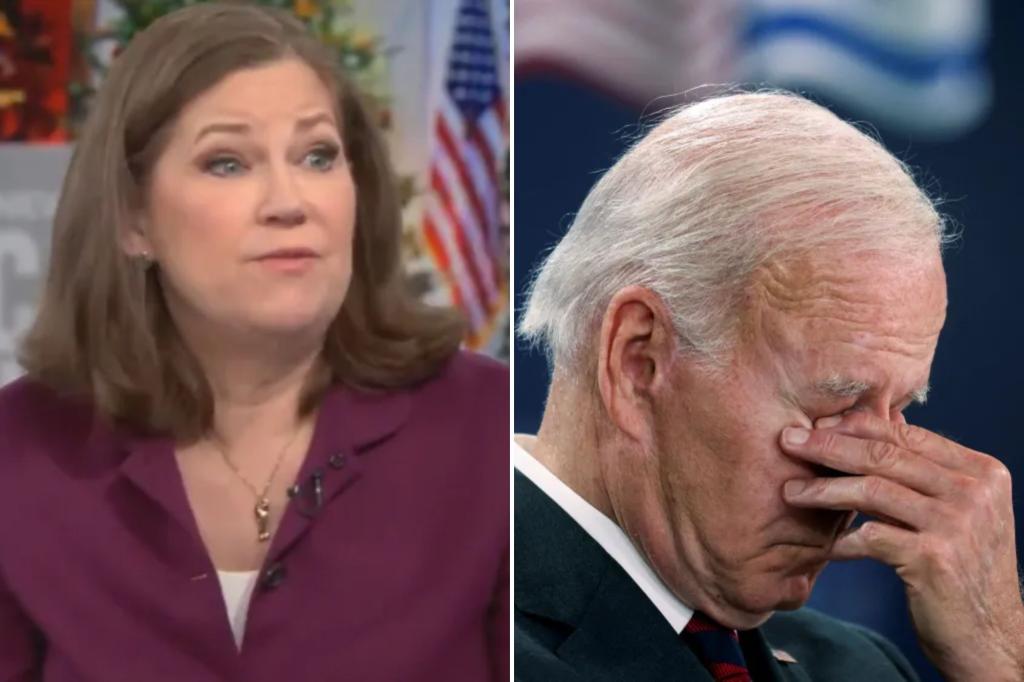The 2024 presidential election cycle witnessed a significant, yet arguably underreported, narrative surrounding President Joe Biden’s cognitive abilities. Veteran CBS News reporter Jan Crawford highlighted this issue, asserting that the media’s insufficient scrutiny of Biden’s cognitive decline played a pivotal role in the election’s outcome. Crawford argued that a more robust investigation into Biden’s fitness for office could have triggered a Democratic primary challenge, potentially reshaping the entire electoral landscape. Her critique centered on the notion that the media, for a considerable period, failed to adequately address the growing concerns about Biden’s mental acuity, a lapse she believes had profound consequences.
Crawford’s contention gains further weight when considering the subsequent revelations about the White House’s efforts to manage Biden’s public appearances and limit his unscripted interactions. A report by the Wall Street Journal detailed how aides meticulously orchestrated Biden’s schedule to minimize potential instances of cognitive slips or gaffes. This revelation supports Crawford’s argument that the media should have been more proactive in questioning Biden’s fitness for office, given the apparent efforts to shield him from scrutiny. The existence of such measures, designed to control the President’s exposure, raises questions about the transparency and forthrightness of the administration regarding Biden’s cognitive state.
The turning point in the narrative surrounding Biden’s cognitive abilities came during the televised debate against Donald Trump. Crawford described Biden’s performance as undeniably demonstrating a cognitive decline, a moment she believes solidified public concerns that had been simmering beneath the surface. Prior to the debate, news outlets, including The Post, had reported on Biden’s increasing frequency of gaffes and on-camera struggles. However, the debate served as an undeniable inflection point, forcing the issue of Biden’s cognitive fitness into the forefront of public discourse. The stark contrast between Biden’s performance and the demands of the presidency fueled a surge in reporting and commentary on his capacity to lead.
The fallout from the debate was swift and dramatic. Biden’s struggles on the debate stage ultimately led to his replacement as the Democratic nominee by Vice President Kamala Harris. This unprecedented move underscored the gravity of the concerns surrounding Biden’s cognitive state. The decision to replace a sitting president with his vice president mid-campaign speaks volumes about the internal assessments within the Democratic party regarding Biden’s viability as a candidate. The subsequent defeat of Harris by Trump further cemented the narrative that the handling of Biden’s cognitive decline had profound repercussions for the Democratic party.
In the aftermath of the election, Crawford expressed disbelief at reports that Biden and his aides allegedly regretted his withdrawal from the race, believing he could have defeated Trump. She characterized these sentiments as either delusional or a deliberate attempt to mislead the public. This stark assessment reflects the deep divide in perspectives regarding Biden’s cognitive abilities and their impact on the election. While some within Biden’s inner circle maintained that his debate performance was an anomaly due to illness, others, including Crawford, viewed it as a clear manifestation of a deeper cognitive decline that ultimately rendered him unfit for a second term.
The contrasting viewpoints on Biden’s cognitive state highlight the complex and sensitive nature of the issue. While Robert Costa, CBS News’ chief election and campaign correspondent, acknowledged the reporting on Biden’s struggles, he also emphasized that Biden and his aides maintained that his debate performance was an isolated incident due to illness. This divergence in interpretation underscores the challenge of objectively assessing a president’s cognitive abilities and the potential for political motivations to influence these assessments. The debate surrounding Biden’s cognitive decline serves as a reminder of the importance of thorough and unbiased reporting on matters of presidential health and fitness for office.










